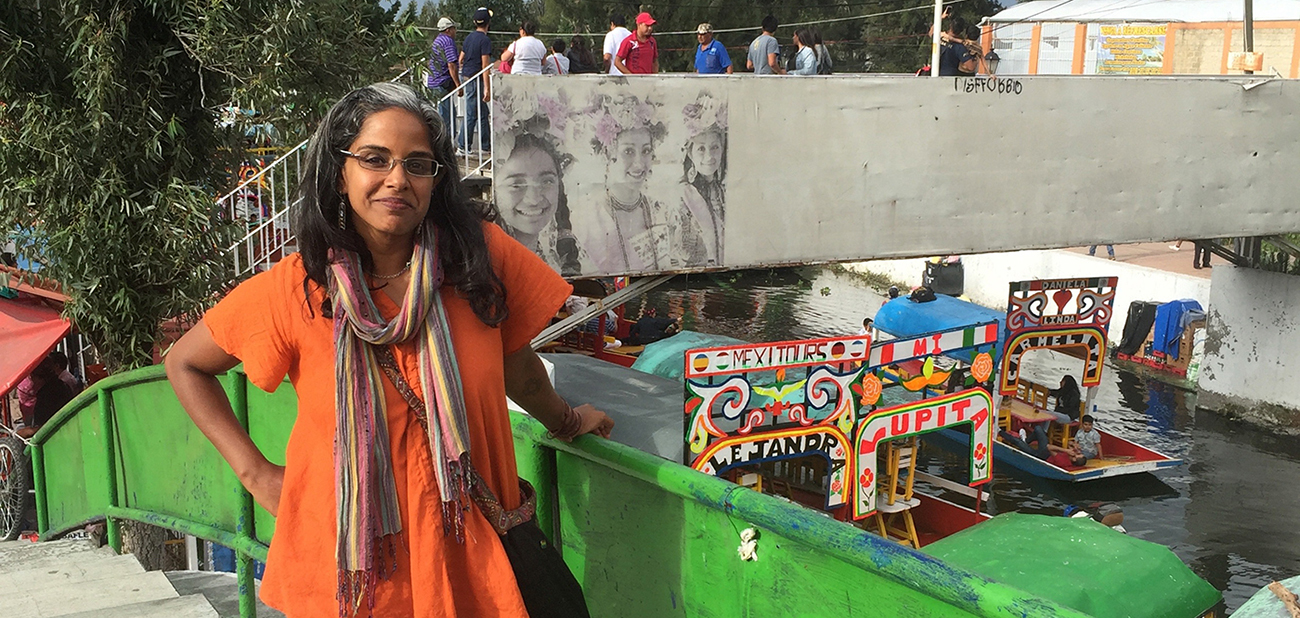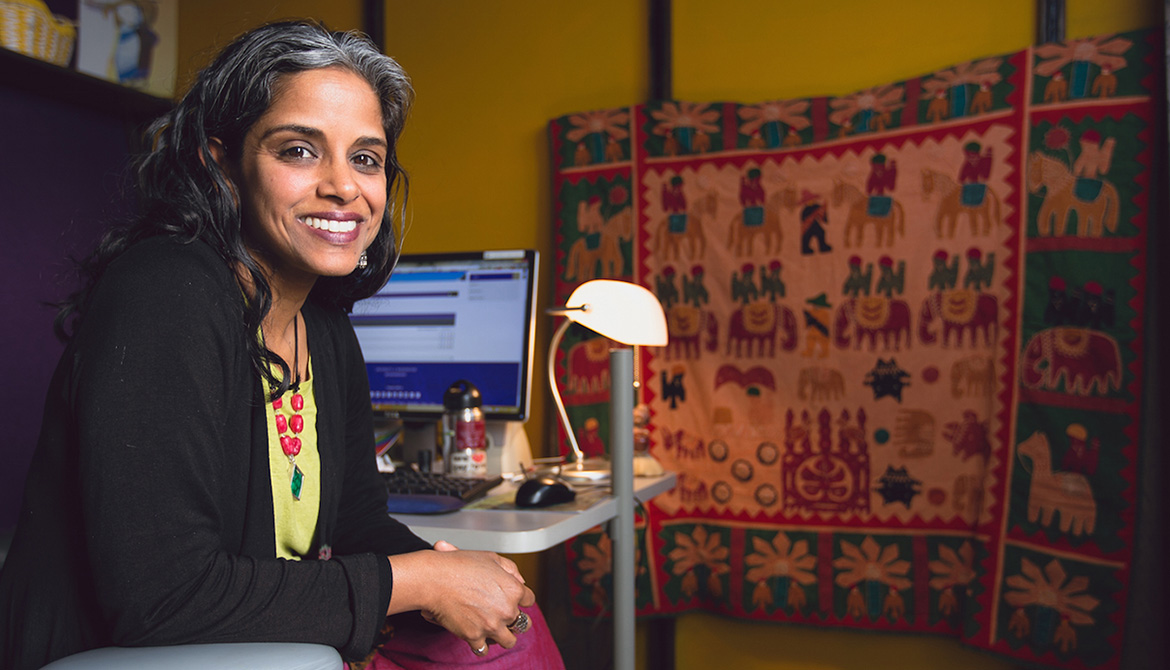
What is it like to travel through parts of the world that are socioeconomically different from home? How can travelers navigate the challenges, opportunities — and sometimes powerful emotions — of respectfully exploring cultures with lower incomes, different cultural patterns, and far fewer luxuries?
Anu Taranath, principal lecturer in the University of Washington Department of English and the Comparative History of Ideas Department, explores such questions in her new book, Beyond Guilt Trips: Mindful Travel in an Unequal World. Taranath has led student trips specializing in human rights themes to India, Mexico, and other locations, and has her own consulting company on racial equity.
“Many of us want to connect with people unlike us, and we know that’s a good thing — it’s good for our democracy, good for our souls, good for our communities,” Taranath says. “But we’re also not sure how to do so, because of the persistent inequities in race, economics, and global positioning.

"Having good intentions and knowing how to connect are two different things. We often soak in guilt and soak in shame for all that we have, especially if we come from a very privileged background and are going into communities that have little or none of what we have. How could you not feel guilty? How could you not start feeling really uncomfortable?”
The book, Taranath says, is informed by her many travels with UW students and the ways she sees them wrestle with ideas like: What does it actually mean to be global citizens, to be mindful of these inequalities, and to act accordingly?
Beyond Guilt Trips starts at home and takes readers through stories where Taranath — both narrator and a central character in the telling — and students and others are finding their way through that guilt. "What happens on the far side of such feelings?" she asks. “What else might we find?”
...having good intentions and knowing how to connect are two different things.
Taranath's advice? A mix of persistence and humility. “You have to stay in it to get through it — that’s the first thing. We live in an exceptionally distracted time, and whenever there is an uncomfortable moment of feeling we are quick to swipe it away, to move out of it.”
But try to resist that, Taranath advises. And try to understand that “mindful travel in an unequal world isn’t about getting on a plane to go somewhere — it’s about paying attention, and noticing positionality in relation to each other. It’s about understanding that we are all living in a much longer history that has put us in different positions of advantage and disadvantage, and equipped us with very few tools to talk about it.”

Taranath adds that these lessons are not only for travel.
Such conversations, she says — about having or not having, or enjoying opportunity or not — “these are not just questions you experience when you are abroad in Nepal or in Honduras. They are questions our students should be grappling with, all the time, here, in the community they are in.”
Beyond Guilt Trips: Mindful Travel in an Unequal World was published in May by Between the Lines.
. . .
This article was first published in UW News on May 24, 2019.
Hear Anu Taranath discuss her book in a KUOW interivew here. An October 16 event will feature a panel discussion on mindful travel and navigating social hierarchies at home and abroad, with Taranath and several of her international partners from Mexico, India, and Ghana as panelists.
More Stories

AI in the Classroom? For Faculty, It's Complicated
Three College of Arts & Sciences professors discuss the impact of AI on their teaching and on student learning. The consensus? It’s complicated.

A Love of Classics and Ballroom
Michael Seguin studied Classics at the UW and now owns Baltimore's Mobtown Ballroom. The two interests, he says, are more connected than they might seem.

A Healing Heart Returns
In February, the UW Symphony will perform a symphony that Coast Salish elder Vi Hilbert commissioned years ago to heal the world after the heartbreak of 9/11. The symphony was first performed by the Seattle Symphony in 2006.